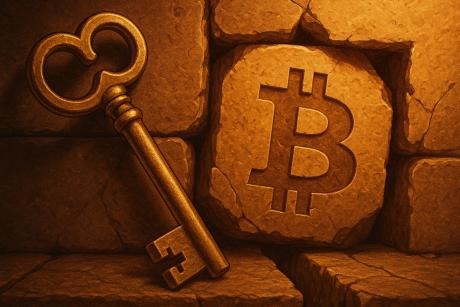Many of you reading this might be able to relate to an all too common scenario. You discovered Bitcoin some time ago, started to inform yourself, fell down the rabbit hole, raised your level of curiosity and, with it, your knowledge about how Bitcoin is going to radically change the world — only to continually find yourself wondering: In light of all of this volatility, when is the best time to buy bitcoin?
As a matter of fact, while Bitcoin, with its absolute digital scarcity, is a new fixed point in our universe, it is able to relentlessly take people’s thoughts and minds captive. Because Bitcoin’s price has been on a rollercoaster ride ever since it was introduced, the ups and downs can easily make you go crazy. Anecdotal evidence even suggests that the wellbeing of more than one family is at stake, because newly-turned Bitcoiners are completely absent, constantly thinking about when to buy bitcoin and not paying any attention to relatives at their mom’s birthday party.
Trying to time the market and find the best entry point into volatile assets like bitcoin is not only nerve-wracking and potentially detrimental to family relationships, it’s also impossible for the average Joe. While timing the market is said to be best left to professional traders (even though they might not be that much better at it), retail investors are generally advised to follow a different strategy.
Time In The Market Beats Timing The Market
For the traditional as well as the bitcoin market, the most prominent and established strategy is that of Dollar Cost Averaging (DCA) or, as Friar Hass has put it, Fiat Cost Averaging (FCA). In simple terms, this means: Investing a fixed amount of fiat into bitcoin every week, month, quarter — whatever suits your timeframe best. By sticking to a fixed schedule, capricious human behavior strongly influenced by emotions is taken out of the picture. Choosing this rule-based approach does not only offer you better average returns in the long run, since your buying pattern is smoothed out, but also gives you peace of mind and the ability to pay family members the level of attention they deserve.
But let’s have the numbers speak for themselves: Buying $100 of bitcoin every week for one year starting one year ago would have turned $5,200 into $6,295, which adds up to a return of 18 percent. Investing $100 of bitcoin every week for three years starting three years ago would have turned $15,600 into $23,125, which is a return of 47 percent. And finally, if you had put $100 into bitcoin on a weekly basis for five years starting five years ago, your $26,000 would be worth $199,626 now, a total increase of 664 percent.
These numbers are truly astonishing. And they have not gone unnoticed. Several Bitcoiners from all around the world, all having gone the bumpy road of continually figuring out the best moment to buy bitcoin, have set out to make FCA into bitcoin an easy and convenient task. Today, almost any continent on this planet is populated by people taking this easy route to Bitcoin.
Bitcoin: By The People, For The People
In the U.S., one of the hottest apps is Cash App. Behind this popular app is none other than Twitter CEO Jack Dorsey, with his company Square. As such, the business has reported a significant bitcoin revenue increase in the second quarter of this year. The app generated a total of $875 million in revenue, a 600 percent increase from the previous year. While Cash App offers stock investing as well, Square’s bitcoin gross profit jumped 711 percent.
Following suit are native Bitcoin startups like Swan Bitcoin and River Financial that have positioned themselves as innovative companies offering DCA services into Bitcoin. Swan Bitcoin, for example, has thousands of users, 100 percent of whom are on automatic recurring purchase plans, and they buy millions of dollars of Bitcoin each month.
Right across the border in Canada, customers looking for DCA options are served by Bull Bitcoin. While thousands of Canadian are using Bull Bitcoin as individuals, the company has recently released a open-sourced Batcher via Cyphernode, which allows any enterprise to efficiently process DCA orders and perform multiple bitcoin transactions per day.
Outside of North America, the English speaking world is pretty well covered with Bitcoin DCA services, too. Coinfloor (U.K.), Bitaroo (Australia) and Amber (Australia) have been established players for the past few years, each of them continuing to add specific features for recurring purchases.
The rest of Europe was previously supported by Bittr, but it shut down earlier this year due to AMLD5 legislation. Fortunately, Relai, a Swiss-based team that includes Bitcoiner Giacomo Zucco as an investor, is showing signs of being able to fill the gap left by Bittr and avoids some of the registration pitfalls that were cited as reasons for Bittr’s shutdown.
Resisting Dumb Money
Appealing to the masses out there is evermore important. In our day and age, regular folks are lured into trading assets of all kinds. Money printing by central banks has turned financial markets into global casinos. To Robinhood traders and crypto fanatics trying to make a quick buck, the case for FCA sounds rather boring — and yes, it is exactly that.
But this is intentionally so. As a Bitcoin DCA investor you are acknowledging that the world has gone crazy. It has dawned on you that because fiat money is being constantly devalued and made worthless as a savings vehicle, swaths of laymen are forced to speculate in order to escape the creeping devaluation of their cash and bank deposits.
In their desire to farm markets, the many eager lay people don’t realize that they are not the predator, but the prey. They contribute to an ever-increasing pool of so-called dumb money that sophisticated traders gratefully exploit. Mind you: The calling out of dumb money is not some elitist jargon to mock the many ordinary investors. It is not so much a derogatory bashing as it is the sober recognition of the fact that greater and greater amounts of people are being driven to speculating with financial assets, a task they have little to no knowledge of.
A few decades ago, our great-grandparents were able to build up their retirement provisions through hoarding. Gradually turning away from the gold standard and the transition to pure fiat currencies, this has become increasingly difficult. When our fiat money was finally cut off from gold in 1971, an ongoing systemic credit creation was institutionalized and mere hoarding turned into a meaningless strategy for the ordinary citizen.
Making Hoarding Great Again!
With the emergence of Bitcoin, this has changed. Bitcoin is a tool that gives you a good way to hoard money again, without it being devalued in the long run in the age-old war on hoarding. While history books euphemistically speak of currency reforms, these reforms were really just anti-hoarding efforts by governments all around the world and the current manifestations of this fight are the policies of quantitative easing and negative interest rates.
In a sense, Bitcoin serves as a global piggy bank. As such, it serves as a global piggy bank, a new global liquidity pool that — because of its open, neutral and digital nature — serves nearly anyone on this planet. Helping to access and reserve one’s seat in this global piggy bank are the many different DCA services that are bound to grow in size and relevance — just as Bitcoin itself.
Published in: Bitcoin Magazine








